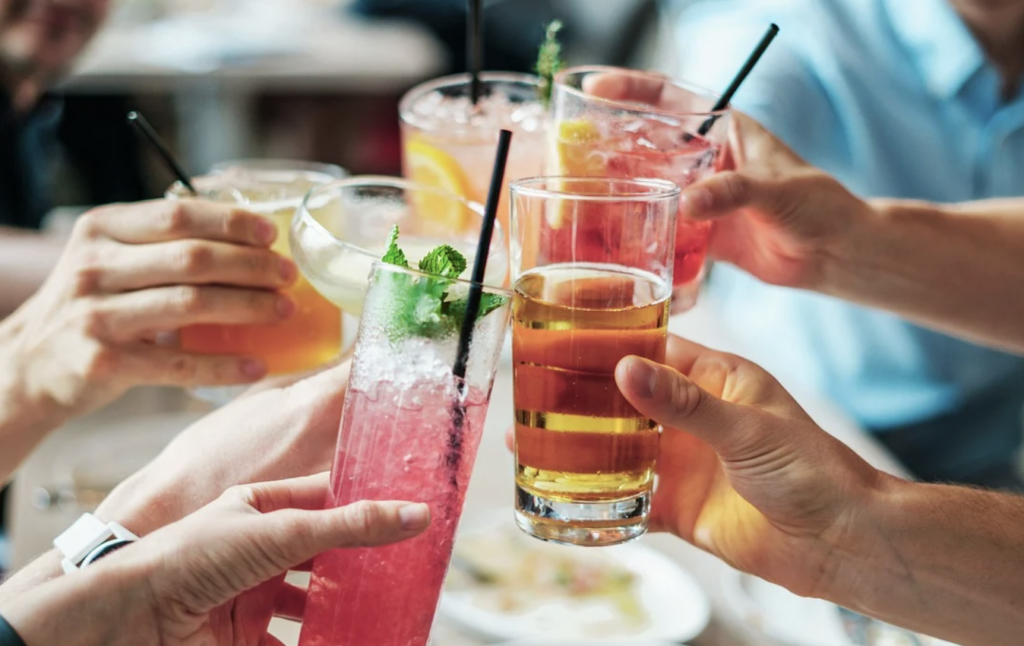Mocktails Are Tasting More And More Like Real Cocktails
Today’s mixologists are creating cocktails with various ingredients, such as fruit juice, syrup, herbs, and spices that are just as complex and flavorful as their alcoholic counterparts.
This article is more than 2 years old

Mocktails have become extremely popular in recent years, appearing more frequently on the menus of bars and restaurants. These non-alcoholic drinks mimic the flavor and appearance of traditional cocktails but do not contain any alcohol. As such, they have become an excellent choice for anyone who wants to enjoy a fancy beverage without any adverse effects.
Jack Bishop of America’s Test Kitchen fame believes mocktails are a fascinating shift in the realm of beverages. Speaking to NPR, he said says sales of non-alcoholic drinks doubled in 2022 and continue to grow. Technological breakthroughs have also helped to improve the taste of faux drinks. In the past, non-alcoholic drinks were often limited to basic options like soda, juice, and water.
Today’s mixologists are creating mocktails that are just as complex and flavorful as their alcoholic counterparts. These drinks incorporate various ingredients, such as fruit juice, syrup, herbs, and spices, to create unique and delicious flavor combinations. “The things that give tequila or gin their flavor are herbs or spices,” Bishop explained.
“And maybe 10 years ago, the first companies were inventing the technology to make alcohol-free cocktails by using the alcohol as a solvent for removing those flavor compounds to make these super flavorful drinks,” Bishop continued. Now, several establishments offer dedicated mocktails menus filled with creative and delicious options.
As a result, mocktails have become more accessible to mainstream beverage aficionados. But Bishop says there are a few ways to make one’s experience with mocktails even better. Most bars encourage patrons to ask the mixologist to create custom drinks in their preferred flavor profile. However, it’s also important to note that these drinks are not cheap.
While it might seem like overkill for a glass of fancy juice, Bishop says adding extra flavor to mocktails is rather complex. “The technology is actually pretty complicated,” he told NPR. He explained that extracting the flavors from botanicals, along with the distillation and manufacturing process, can be very expensive.
The increasing demand for healthier and more mindful drinking options is a significant contributor to the rise of non-alcoholic drinks. With more people adopting healthier lifestyles, the consumption of alcohol has come under scrutiny due to its calorie content and mind-altering ingredients. “The “sober curious” movement has also boosted the mocktails market.
According to Sobero, the term refer “to “people who are interested in exploring their relationship with alcohol and are looking for ways to socialize without” it.” For folks who are questioning the role of alcohol in their lives and choosing to abstain, mocktails give them a way to participate in social events without feeling left out.
Despite the increasing popularity of mocktails, they are not a direct substitute for alcohol. People who enjoy alcoholic drinks may still choose to consume the real thing. Additionally, mocktails can be seen as a less exciting option for those looking to indulge, as they may not offer the same effects as alcohol. So it’s unlikely that they will completely replace traditional cocktails.
Still, mocktails will continue gaining momentum as more people experiment with sober living during Dry January and Sober October. Their increased complexity, which includes herbal notes and flavorful syrups that offer the taste of actual alcohol, is a significant draw. And its growing popularity is a sign that our culture is open to non-alcoholic alternatives.




